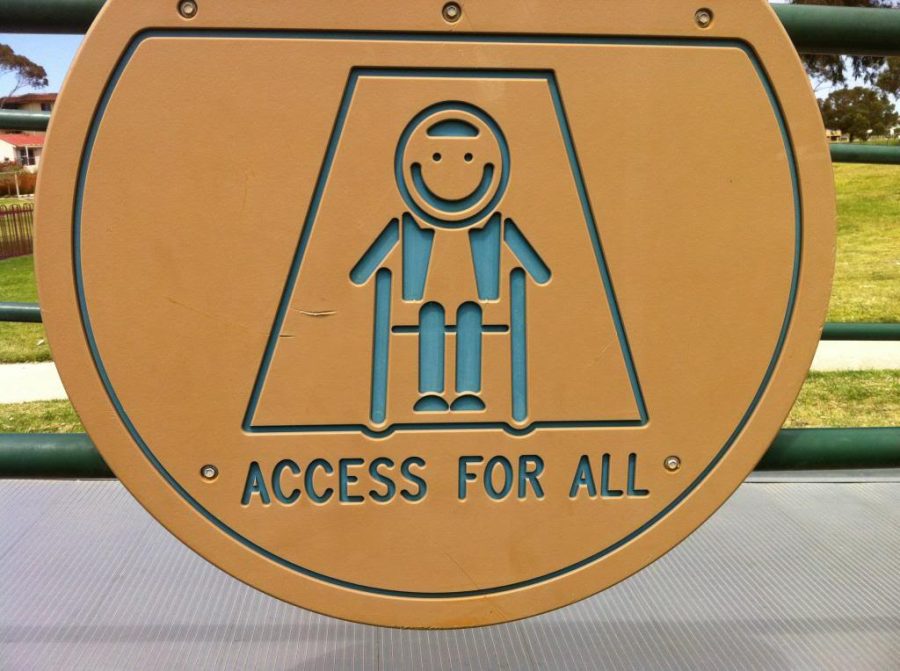In many ways, getting older is about as appealing as extensive dental work without Novocaine. However, there is one aspect of approaching fifty that I’m grateful for, and that is the increased realization that my view of the world is largely limited to my own experiences. I see the world through my personal lenses, and the world reacts to me by what it sees: forty-something, middle class, educated, white, etc. How do I change the narrow way in which I view the world? It’s actually pretty simple, and yet so many people refuse to do it. Just listen to the people who face discrimination every single day and allow yourself a glimpse into their lives. Why is this so hard for people? Because when we aren’t the object of discrimination, it’s easy not to see it as a problem. The knee-jerk reaction is to either get defensive, or else just deny the existence of the issue entirely.

Old Navy (Photo from Twitter)
This morning, The Today Show had a segment on a Tweet from Old Navy that featured a beautiful family. Apparently there are some outraged Twitter users who are refusing to go into Old Navy stores again because they chose to feature this couple. I was honestly surprised that this image would cause any kind of uproar. But it illustrates the point that I made above. My husband and I are from the same racial background. I’m sure if we weren’t, or if one of our young adult children decided to marry someone of a different race, we would all be acutely aware of the fact that people living among us in 2016 still react this strongly to the issue on interracial marriage. Even though it still saddens me (because I just can’t understand how this family is hurting anyone in any way), at least seeing this blurb on TV educates me to what interracial families deal with.
Our son has Asperger’s, which causes him to feel set apart from society in many ways. Imagine him at the age of twelve (as if middle school isn’t hard enough) being told by his church pastor that he couldn’t participate in the confirmation class being offered because she thought, “he wasn’t ready.” There was another middle school aged child in the class, but he wasn’t allowed. We pleaded with the church pastor on two separate occasions to allow him to be a part of the class, explaining how excluded he felt. But this woman, with all of her lofty ideals about inclusion, didn’t see any problem. To her it was evidently completely acceptable to exclude him. As a parent, this was heartbreaking and we no longer attend this church. But until the world makes an effort to understand what it is like not to process sensory information normally, to be unable to determine a person’s meaning from a facial expression or their body language, this type of discrimination will keep going on.
Also within the past week, I read a blog by a mom whose son is in a wheelchair. It was heartbreaking to think of her little boy stuck in his chair watching the other kids run and play. Even though I’m a pediatric nurse and I’ve taken care of children in wheelchairs, I had never put myself in the position of one of these precious children or their parents. I found a blog with images of a playground in Australia that has the great swing featured in the image below. My favorite part was a sign mounted at the entrance that said, “Access for All.” Whether we have a child in our lives with this need or not, we should all be aware of the problem and support these types of play areas. One amazing little girl I’ve taken care of in the past was excluded from almost every preschool in the area because her “disability” made her a liability. Until she is old enough to enter the public school system, her parents are at the mercy of private programs and how far they will stretch themselves to give her a place to participate in a school environment.

Sir James Mitchell Park in Perth, Australia
I’ll apologize in advance if this blog sounded preachy. It isn’t meant to be. But, I’d love to see everyone make a conscious effort to view life through the lens of others who are different than us. We’ve all heard that expression about walking a mile in someone else’s moccasins. It’s taken from a poem by Mary T. Lathrap. I’ll end this post with her words in the opening lines.
Or stumbles along the road.
Unless you have worn the moccasins he wears,
Or stumbled beneath the same load.




